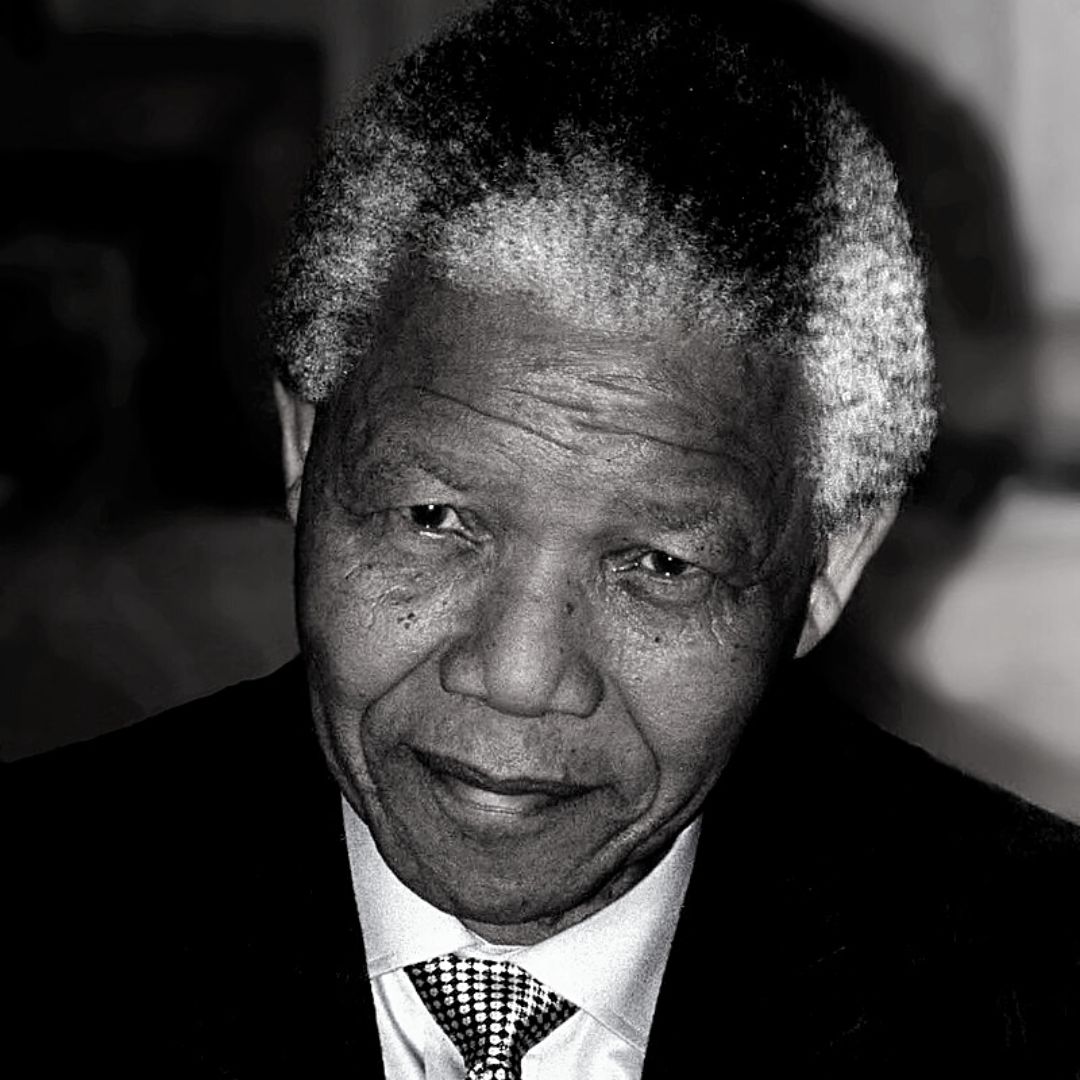
Image Credits: Wikipedia
Remembering South African Icon Nelson Mandela For Rebuilding A Nation Shattered By Racism & Injustice
Writer: Tashafi Nazir
For most people, journalism sounds hectic and chaotic. For her, it's a passion she has been chasing for years. With an extensive media background, Tashafi believes in putting efforts on presenting a simple incident in the most interesting way.
Others/World, 18 July 2022 10:28 AM GMT
Editor : Shiva Chaudhary |
A post-graduate in Journalism and Mass Communication with relevant skills, specialising in content editing & writing. I believe in the precise dissemination of information based on facts to the public.
Creatives : Tashafi Nazir
For most people, journalism sounds hectic and chaotic. For her, it's a passion she has been chasing for years. With an extensive media background, Tashafi believes in putting efforts on presenting a simple incident in the most interesting way.
Mandela Day is a celebration of the 67-year-long fight of the South African leader against racial discrimination and human rights abuses. He was the country’s first black president.
Every year, July 18 is marked to remember and celebrate the life and achievements of a great leader and former South African President, Nelson Mandela.
Mandela Day, also known as Nelson Mandela International Day, is a celebration of the 67-year-long fight of the South African leader against racial discrimination and human rights abuses. He was the country's first black president. The day's purpose is to inspire everyone to make a difference in their communities by following the ideology and vision of Mandela, News18 reported.
Born on July 18, 1918, to a Xhosa Thembu Royal Family, Nelson Mandela was named Rolihlahla at birth, which means "pulling the branch of a tree" or a positively disruptive thinker or a troublemaker. He was also named Madiba, meaning "Father of the Nation" in the Xhosa language. In addition, he acquired the name 'Nelson' from his Methodist church teacher when he was seven years old.
As per Diplomatist, Mandela joined the University College of Fort Hare to study law, where he was recognised for being outspoken and standing against injustice. These traits got him suspended for his activities in the Student Representative Council. Eventually, in 1941, he moved to Johannesburg, where he met Walter Sisulu and other members of the African National Congress (ANC).
In 1944, Mandela joined the ANC while completing his law degree at the University of Witwatersrand. His outspoken nature again distinguished him as the only black law student amongst his friends with a strong political will. The young Mandela became very instrumental in the anti-Apartheid protests after introducing the discriminatory policies in 1948.
Fight Against Apartheid
According to the Canadian Museum for Human Rights, Mandela fought against apartheid, a system of white supremacy in South Africa. Under this system, every person was put into one of four racial categories: "white/European," "black," "coloured," or "Indian/Asian." Non‐white South Africans were second‐class citizens with less or no political power. Restrictive laws governed every aspect of people's lives, dictating where they could live, travel and work and restricting their access to health care, education and other social services.
Mandela rose against apartheid and called all South Africans to join him. Although he was arrested and imprisoned for 27 years for fighting for freedom, the brave heart refused to give up the struggle or surrender to hate. Besides fighting against apartheid, he was standing for a better world in which the freedom, justice and dignity of all were respected. Even before he was released in 1990, Mandela started negotiating with the government to end the apartheid system. Through these negotiations, he helped prevent a bloody civil war and became the country's first democratically elected president.
Commitment To Equality
Mandela started his tenure by expressing his commitment to equality with his call for the "emancipation" of South African women – a call for equality across systems in the country. When he was elected president, women held just 2.7 per cent of South Africa's parliament seats. This figure grew to 42.7 per cent in 2019, demonstrating the progress in his mission of gender equality.
In 2000, he joined the fight against HIV/AIDS when the epidemic's scope became evident in South Africa. By 2003, Mandela's foundation launched the '46664' initiative to raise AIDS research and advocacy funds. In 2005, he spoke out about the loss of his son to the disease, attempting to de-stigmatise it and create greater awareness.
Mandela advocated for the rights of children, especially their freedom of education. In 2007, he established the Nelson Mandela Institute for Rural Development and Education to train and send high-quality teachers to rural areas and equip schools with modern facilities. In addition, he donated a third of his salary to ending extreme hunger, poverty, exploitation, and homelessness during his tenure as president.
After retiring as president, Mandela continued raising awareness about Africa's HIV/AIDS crisis. He also helped broker peace in the Democratic Republic of the Congo and Burundi. However, his health conditions declined due to prolonged imprisonment, and he retired from politics in 1999. Despite his retirement, Mandela continued to be active and present in the affairs of South Africa. He also remained globally active as an icon for the struggle against suppression until he was admitted to the hospital in June 2013. Although his health seemed to improve, he finally passed away in the late evening of December 5, 2013.
Also Read: Tamil Nadu: Violence Erupts After 17-Yr-Old Girl Dies By Suicide; Buses Torched, Several Injured
 All section
All section














